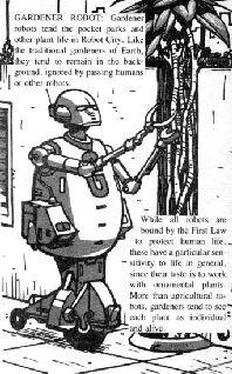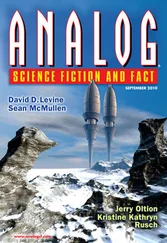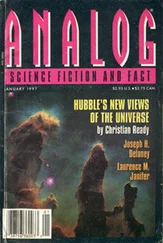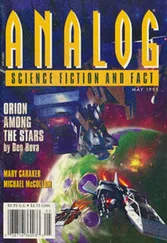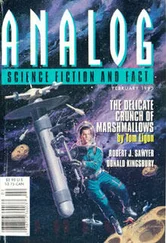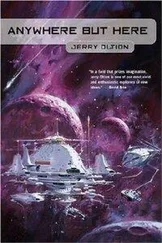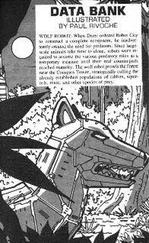Jerry Oltion - Alliance
Здесь есть возможность читать онлайн «Jerry Oltion - Alliance» весь текст электронной книги совершенно бесплатно (целиком полную версию без сокращений). В некоторых случаях можно слушать аудио, скачать через торрент в формате fb2 и присутствует краткое содержание. Год выпуска: 1990, ISBN: 1990, Издательство: Ace Books, Жанр: Фантастика и фэнтези, на английском языке. Описание произведения, (предисловие) а так же отзывы посетителей доступны на портале библиотеки ЛибКат.
- Название:Alliance
- Автор:
- Издательство:Ace Books
- Жанр:
- Год:1990
- ISBN:ISBN: 0-441-73130-9
- Рейтинг книги:3 / 5. Голосов: 1
-
Избранное:Добавить в избранное
- Отзывы:
-
Ваша оценка:
- 60
- 1
- 2
- 3
- 4
- 5
Alliance: краткое содержание, описание и аннотация
Предлагаем к чтению аннотацию, описание, краткое содержание или предисловие (зависит от того, что написал сам автор книги «Alliance»). Если вы не нашли необходимую информацию о книге — напишите в комментариях, мы постараемся отыскать её.
Alliance — читать онлайн бесплатно полную книгу (весь текст) целиком
Ниже представлен текст книги, разбитый по страницам. Система сохранения места последней прочитанной страницы, позволяет с удобством читать онлайн бесплатно книгу «Alliance», без необходимости каждый раз заново искать на чём Вы остановились. Поставьте закладку, и сможете в любой момент перейти на страницу, на которой закончили чтение.
Интервал:
Закладка:
Jerry Oltion
Alliance
Robots And Fathers
Isaac Asimov
All of us began as fertilized ova, obviously. For the first nine months, or maybe a little less, we existed in a womb which, under normal conditions, represents about as close to total security as we are likely ever to have. Unfortunately, we have no way of knowing and appreciating this security at that time.
We are then brought suddenly into the outside world, with a certain amount of violence, and are exposed, for the first time, to changes in temperature, to the rough touch of moving air, to breathing, drinking and eliminating only with effort (however instinctive and automatic that effort might be). The womb is forever gone.
Nevertheless, each of us, if we have had a normal infancy, has parents; a mother, in particular, who labors to substitute for the womb as much as possible. We are all nearly helpless, but mothers and, to some extent, fathers, if enlightened, see that we are warm, comfortable, fed, washed, dried, and given a chance to sleep undisturbed. It is still not bad, and we are still in no condition to appreciate our good fortune.
Then comes the stage when we are aware of our surroundings. Still small, still largely helpless, we become able to understand the dangers that on us press; we become capable of feeling fear and panic; we become able to grasp, however dimly, the discomfort of loss or threatened loss, and the anguish of unfulfilled desire.
Even then, there is a means of relief and redress. There are the looming figures of father and mother (and, to a far lesser extent, older siblings, if any). We have all seen young children clinging to a father’s leg desperately, or peeping out from behind a mother’s clutched skirt at the fearful sight of other human beings or almost any other kind of novel experience. We see them (and perhaps we can think of ourselves in the dim earliest memories we have) rushing to mother or father as the all-encompassing security.
I remember my daughter, Robyn, at the comparatively advanced age of fourteen, telling me how she had taken an airplane under threatening weather conditions. When I registered fear and terror at what might have been the consequences, she said, calmly, “I wasn’t afraid, because Mamma was with me and I knew she wouldn’t allow anything to happen to me.”
And when she was nineteen, she was temporarily marooned in Great Britain’s Heathrow airfield because of a “work action.” She called me long distance (collect) to tell me of her sad plight and said, with sublime confidence, “Do something!” I was about to try when they announced her plane was taking off and I did not have to reveal my inability to move mountains.
It is inevitable, however, that all children reach the stage where they realize that their parents are but human beings and are not creatures of ultimate ability and wisdom. Most children learn it a lot sooner than mine did because I went to considerable pains to play the role.
Whenever children learn of their parents’ fallibility and weakness, there is bound to be a terrible feeling of loss. The loss is so intense that there is an inevitable search for a substitute, but where can you find it?
Primitive man naturally argued by analogy. If human beings can puff their breath outward, then the wind (an enormous puff of breath) must be the exhalation of a vast supernatural being like a human being but immensely larger and more powerful, a windgod. By similar arguments, an incredible array of supernatural entities were built up-an entire imaginary Universe.
To begin with, it was assumed that these supernatural beings were as contentious, as irascible, as illogical, as passion-ridden as were the human beings on whom they were modeled. They had to be placated endlessly, flattered, praised and bribed into behaving kindly. It was, I suppose, a great advance when the idea arose that a supernatural being might be naturally kind, merciful and loving, and would want to help and cherish human beings.
And when that happened, human beings at last found the father they had lost as they grew up-not the actual, fallible, human father who might still be alive (and a fat lot of good he was), but the superhuman, all-encompassing, all-knowing, all-powerful father they had had as an infant.
Thus, in the Sermon on the Mount, Jesus repeatedly refers to “your Father which is in heaven.” Of course, it might be argued that the term “Father” is used metaphorically, rather than literally, but metaphors are not developed without reason.
“Fathers” are also found at lower levels than that of a supreme God, since the search for lost security can move in many directions. The representatives of God on Earth may get the title, too. “Pope” is a form of the word “Papa” (it is “papa” in Italian), which is a common word for “father” in many Indo-European languages. And lest the point be lost, he is also called “the Holy Father.” Roman Catholic priests and High Church Episcopalian priests are also addressed as “Father.”
The early theological scholars of the Catholic Church are called “the Fathers of the Church.” It is even possible to look at certain purely secular individuals who are regarded with particular veneration in that fashion. We speak of the “Pilgrim Fathers,” for instance.
We lend the name to Earthly abstractions, too. If one is particularly sentimental about one’s place of birth, its land, its customs, its culture, how can one better describe it than as the “Fatherland.” The Germans have done so with such assiduity and so loudly (“Vaterland”) that the word has come to mean Germany, in particular, and that has made it hard for other nations to use it. We can still speak of the “Motherland” or the “Mother Country,” however. The feminine symbolism bespeaks not so much the sword and spear as the flowing breasts-so perhaps “Motherland” is the healthier metaphor.
The words for “father” and “mother” show up as metaphors in hidden form (for us) because they lurk behind Greek and Latin. The rulers of Rome were the surrogate “fathers” of the State (and pretty lousy and selfish fathers they were). They were “patricians” from the Latin word “pater,” meaning “father.” From “pater,” we also get the Latin word for “fatherland,” so that now we know what a “patriot” is.
A Greek city often sent out colonists who founded other cities which were, essentially, independent, but which often harbored a sentimental attachment for “the mother-city.”
The Greek word for city is “polis” and for mother is “meter.” The mother-city is therefore the “metropolis.” Nowadays, the name is used for any large city dominating a region and the thought is lost-but it’s there.
But has any of this anything to do with robots which are, after all, the subject of my introductions to the series of novels which are brought together under the generic title of “Robot City”?
Surely you can guess. To use mathematical terminology: parent is to child as human being is to robot.
Suppose we rephrase the Three Laws of Robotics and have it the Three Laws of Children, instead.
The First Law would read: A child must not do harm to its parents or, by inaction, allow its parents to come to harm.
One of the Ten Commandments is that we must honor our father and our mother. When I was brought up (by immigrant parents steeped in Talmudic lore), doing my parents harm was unthinkable and, believe me, the thought never occurred to me. In fact, even being impudent was a terrible thing that would have blackened the Universe for me. And, you know, matricide and patricide have always been viewed as among the most horrible, if not the most horrible, of all crimes.
Читать дальшеИнтервал:
Закладка:
Похожие книги на «Alliance»
Представляем Вашему вниманию похожие книги на «Alliance» списком для выбора. Мы отобрали схожую по названию и смыслу литературу в надежде предоставить читателям больше вариантов отыскать новые, интересные, ещё непрочитанные произведения.
Обсуждение, отзывы о книге «Alliance» и просто собственные мнения читателей. Оставьте ваши комментарии, напишите, что Вы думаете о произведении, его смысле или главных героях. Укажите что конкретно понравилось, а что нет, и почему Вы так считаете.
